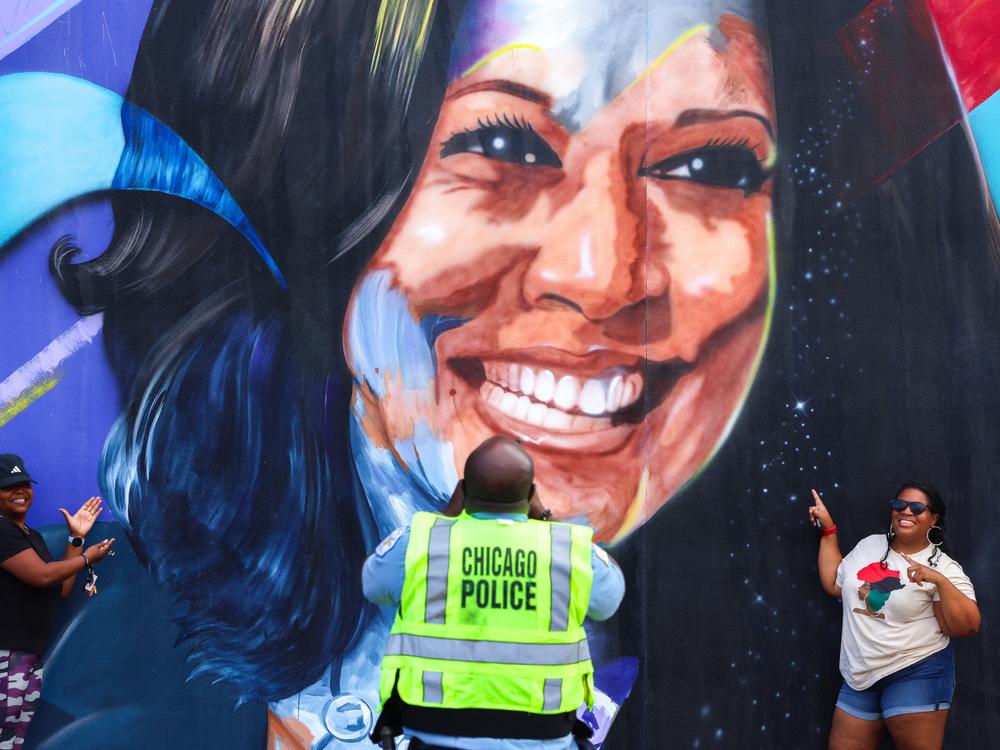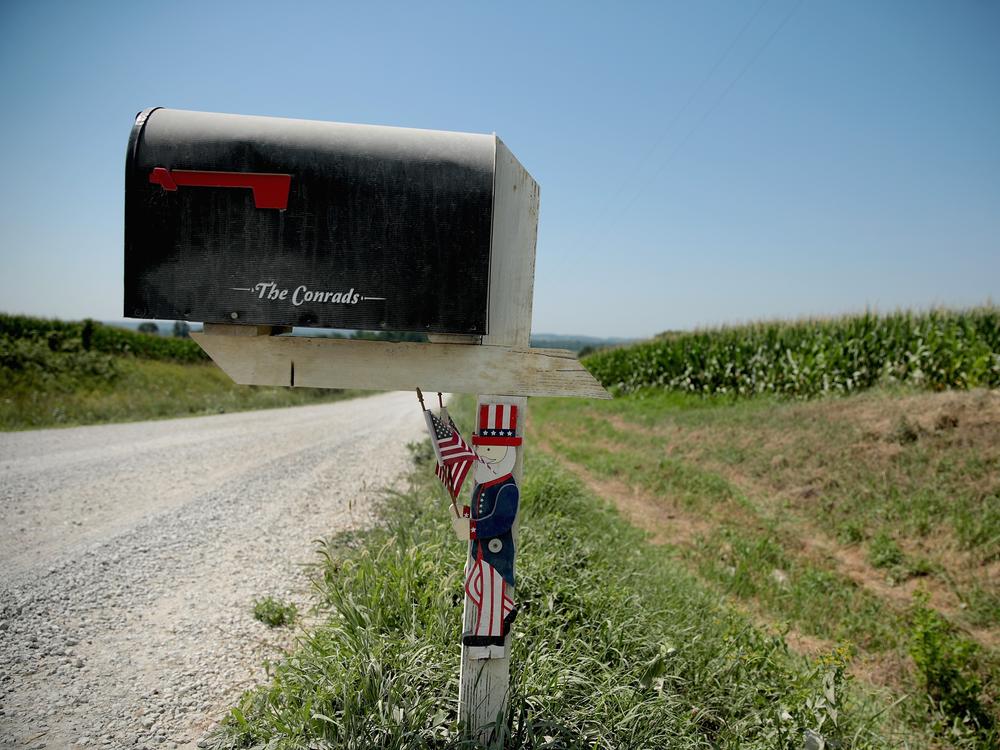Section Branding
Header Content
What Kentucky can teach Democrats about winning in red districts
Primary Content
Kentucky Gov. Andy Beshear started his speech at the Democratic National Convention last week by talking about abortion rights as a matter of humanity and empathy — and as a winning issue for his re-election campaign.
“I beat Donald Trump and Mitch McConnell’s handpicked candidate by more than five percentage points,” he told the cheering crowd.
Beshear is an increasingly rare figure: a Democrat who holds statewide office in a state where politics is dominated by Republicans.
In Kentucky, Republicans have supermajorities in both houses of the legislature, and both U.S. Senate seats.
So Beshear’s political success in the state as a Democrat could be a useful example for the Harris-Walz campaign.
One of Donald Trump’s most common attacks on Kamala Harris is that she represents the most left-wing slice of America.
When you look at her history as a candidate, it is true that before she became vice president, Harris had only won elections in solidly blue, liberal places — to become San Francisco district attorney, then attorney general for the state of California, then a senator from California.
To win the White House, the Harris-Walz ticket will need to appeal to voters in purple, maybe even red areas. We asked Democrats who live in those areas: what could make that happen?
Democrats say it’s about showing up
Many delegates at the Democratic National Convention came to Chicago from more conservative parts of the country.
NPR asked them what they think Democrats need to do to reach voters where they’re from. Here's what a few of them said:
- Leah Midgarden of Minnesota: “It's so important for leaders to step up and say, 'Let's take a step back and let's recognize and take a moment to realize where we all have shared values.'"
- Chris Jones of Arkansas: “Really the bottom line is showing up and if [Harris] can show that, 'I'm showing up and I'm listening, saying, I see you, I hear you.'"
- Bre Maxwell of South Carolina: “Not only do we need to show up, we need to also make sure that we are meeting people where they are.”
Maxwell says meeting people where they are means talking about the things that are important to them — not culture wars, but basic needs.
“We all deserve clean water, access to health care, making sure that K through 12 education is funded, making sure that women have access to reproductive care,” she said.
Anthony Flaccavento, co-founder and executive director of the Rural Urban Bridge Initiative, echoed the need for the Harris campaign to drive that message home during the convention.
“For too long, both parties completely neglected the struggles [rural voters] face, sometimes even enabled them,” he said, noting that red state residents want to hear that candidates will fight for the economic and everyday interests of small business owners over big corporate needs.
“I think if they stick with that basic message and show that they're sincere and that their policy proposals reflect that as well, then I think they have a very good chance of winning.”
And as Maxwell sees it, a lot of the work her party needs to do in red state America is unglamorous and invisible: “Making sure that we are investing into coordinated campaigns in these states, and making sure that we are investing into statewide voter registration.”
It goes back to the idea of showing up. She says Democrats have not prioritized that in rural areas until now.
And then there's the tone.
The messenger and the message
Midgarden was raised on a North Dakota farm and now lives in Red Wing, Minn. — population 16,000.
“There's a real sense from rural people that we are looked down on by urban elites,” she said.
Speakers at the DNC seemed to have gotten the memo. There was no talk of deplorables, as Hillary Clinton once put it in a speech, or people who get bitter and cling to guns or religion, as President Obama once said at a private fundraiser.
Here's how Minnesota Gov. Tim Walz talked about his upbringing in Nebraska at the DNC: “That family down the road, they may not think like you do, they may not pray like you do, they may not love like you do. But they're your neighbors and you look out for them and they look out for you.”
For all the optimism and enthusiasm in Chicago, the numbers are very clear and they don't look good for Democrats: The party's performance in rural America has been sinking steadily for more than a decade.
But you can find places on the map where Democrats have won statewide elections in red states, and those campaigns often have the same guy working behind the scenes: Eric Hyers, a Democratic political strategist.
Hyers said that to win red areas — like Gov. Beshear did in Kentucky — the messenger matters as much as the message. “We had sheriffs, we had Republican business owners, and we kept that going for many, many, many weeks,” he said.
Most of the high-profile Democratic politicians who have carried red states are white men. As a woman of Black and South Asian descent, Harris is not. Chris Jones of Arkansas — a Black man — ran an unsuccessful campaign for governor against Sarah Huckabee Sanders.
He said it's not a coincidence that the Democratic winners in red states have generally been white men, noting: "If you look at most sectors in the U.S. over the last 200 years, it's been white men." But he believes the past doesn't have to predict the future.
The trend lines for Democrats in red areas aren't going to flip overnight, but the path to victory might not require Harris to get a majority in areas that Trump won four years ago. It might be enough just to lose in those counties by a little bit less.
Ashley Brown and Patrick Jarenwattananon contributed to this report.



